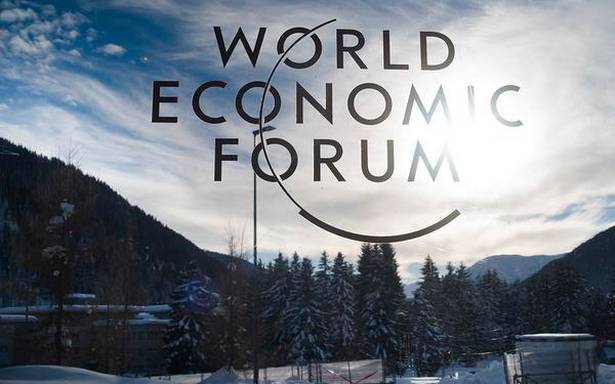The Davos meet is driven by a set agenda based on global trends and challenges
The WEF, which was founded in 1971 by German economist Klaus Schwab, claims to work to “improve the state of the world”. The first meeting of the WEF was held as a management forum that brought together European businessmen to discuss how to compete against U.S. businesses.
Over the years, the event has been thrown open to personalities from other fields of life as well, perhaps in a bid to increase its overall appeal. It is now attended by politicians from both developing and developed countries, CEOs of large corporations, and members of civil society working on a variety of development issues. Diplomats, journalists, movie stars and other kinds of celebrities are also part of the event each year. This year, for instance, the event was attended by heads of state from India and China, billionaires such as Bill Gates and Sunil Bharti Mittal, and technocrats including Janet Yellen and Christine Lagarde.
Entry fee
Participants must pay an expensive entry fee, which varies based on benefits, unless they are invited to the event by the organisers. Last year, the WEF earned 241 million Swiss Francs (about $260 million) in membership and partnership fees. Why would over 3,000 people pay to attend an event like Davos? Is it all really with the aim to “improve the state of the world”? Critics of the WEF argue that businessmen in particular pay hefty fees to attend the event because it gives them access to top political leaders they may not be able to meet as easily otherwise. Businessmen use the WEF as a platform to discuss and finalise business deals behind closed doors.
Whether such deals benefit the wider economy or simply benefit a few billionaires with privileged access to decision-makers is another relevant issue raised by critics. Attending the event also adds to the image of the attendees as members of high society. Given these benefits, the high entry fee may not seem that exorbitant to the guests. It should be noted that the WEF itself is funded by over a 1,000 large corporations each with an annual turnover of at least $5 billion. Others who attend the event, such as politicians and members of civil society, may enjoy the attention and influence that it offers them. Climate activist Greta Thunberg’s speeches at the WEF, for instance, have made headlines across the world.
The WEF’s sympathisers say the annual meeting is an opportunity for leaders who can influence global affairs to exchange views and launch important initiatives. They point to the supposed role the forum played in persuading South African leader Nelson Mandela in 1992 to embrace markets and globalisation, for instance. The WEF has also tried to shed its elitist image by pointing to the wide range of guests, other than billionaires, who have attended the event in recent years.
Each year, the Davos meeting is driven by a set agenda based on global trends and challenges that face the world. Whether the WEF really cares about these agendas or not, they certainly help project the image of the WEF as being a forum to discuss global challenges that affect people across the world. Issues such as climate change and inequality have been on the WEF’s agenda recently. This year, a group of millionaires signed an open letter stating that they were taxed too little by governments despite the significant growth of their wealth during the pandemic. Critics, however, view these pledges as useless lip service by the elite that does not really change realities on the ground. Other critics, meanwhile, have argued that the elite businessmen and technocrats who gather at Davos are a threat to global freedom as they wish to exclusively shape policy that would affect billions of people across the world.
Source: Read Full Article

